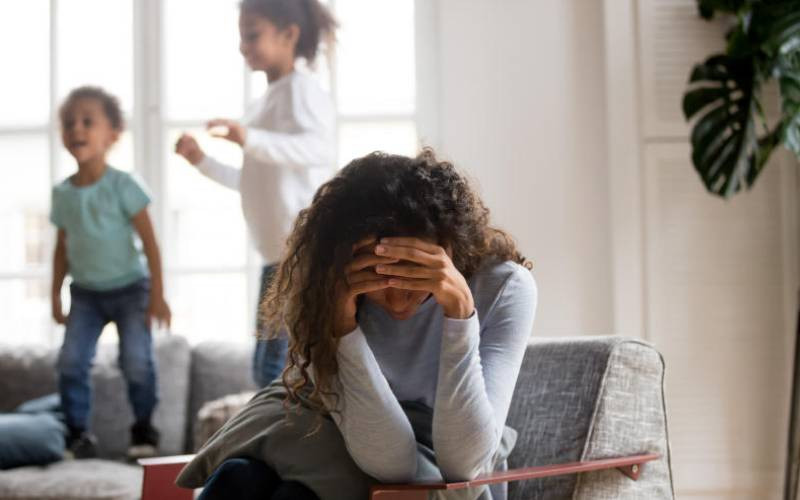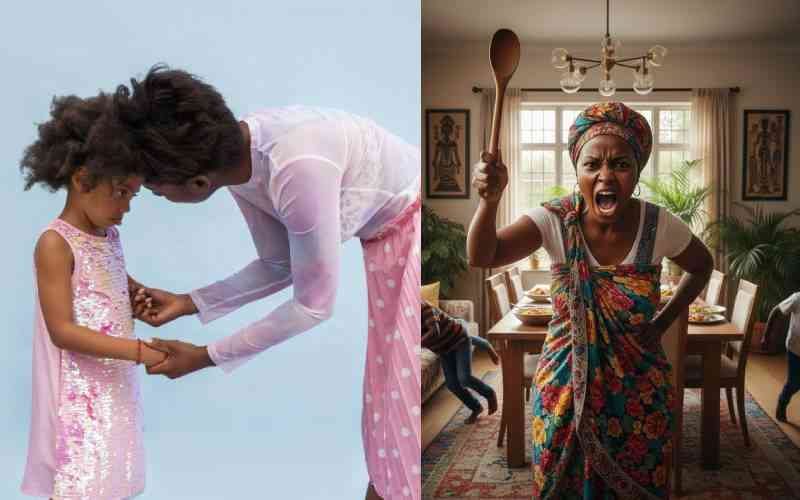
In adoption, transracial adoptions are common. However, they mostly feature white parents adopting black or Asian children. In rear occasions, black parents have adopted white children and unlike when white parents get black babies, these parents have to endure stares in public and backlash, mostly due to cultural biases.
African American Keia Jones-Baldwin, a therapist based in North Carolina wanted to adopt a child but it never crossed her mind that her fourth child would be a white boy.
When Keia was called upon by her foster care supervisor to offer help for a severely underweight premature newborn, she agreed. The baby needed skin-to-skin but there was no one there to hold and nurture him. He had been born prematurely to a mother struggling with drugs and weighed only half a kilo.
Jones-Baldwin looked after him and her kind gesture soon grew into a loving bond. When the baby was healthy enough, he moved in with the Jones-Baldwin family. The baby, Princeton, was supposed to stay for only three months, but his stay turned into a permanent one when Keia and her husband decided to adopt him.
After finalizing the adoption process, the Jones-Baldwins were faced with a new challenge, they had to endure hostility and racial discrimination for having a white baby.
“We get a lot of stares. I’m frequently asked if I’m Princeton’s babysitter. …I get, ‘why didn’t you let him stay with a family of his own race?’” Keia shared with Today Parents revealing that twice she was reported to the police for kidnapping her baby. Keia and her husband now have to carry their son’s adoption papers whenever they go out with him to prove their custody of him.
Keia also has a social media page where she mingles with other black parents with white children as she shares her journey raising multicultural children in a bid to break down racial barriers.

Peter, a Ugandan living in North Carolina, had been a regular volunteer at a local foster agency where young boys were placed under his care until they were ready to rejoin their families. When he registered he was surprised as, contrary to his expectations, the first child that came to his care was a white boy aged five. Peter says that this is when he realized that colour didn’t matter as long as a child needed a home.
“This was when I realized that all children needed a home, and colour should not be a factor for me,” Peter told BBC adding: “I had two spare bedrooms, and I should home anyone who needed it.”
When his foster agency called that they had a boy, 11, who needed a place to stay, it never crossed Peter’s mind that he would eventually be a parent to the boy.
The boy, Anthony, was to stay only a weekend and they bonded so well and after listening to Anthony’s touching story of why he needed a place to stay, a moved Peter decided to make his stay permanent. Within a year he was able to finalize the process and formally adopted Anthony.
While Anthony relishes introducing Peter as his dad to his schoolmates there have been challenges moments. Peter has had to teach Anthony about racism and make him understand why he, Peter, is sometimes treated unfairly.
“I’m your dad and I love you, but people who look like me, we aren’t always treated well. Your job is not to get angry at the people who treat me this way, your job is to make sure you treat people who look like me with honour,” Peter had to explain to Anthony when he was confronted by airport security who didn’t want to accept that he was Anthony’s parent.

Why only a few black families are adopting white children
There are a couple of reasons that have been fronted to support why fewer blacks are adopting white children as compared to white people adopting black children. The reasons include:
There are fewer black families that are adopting Most black families obtain guardianship of children within their extended families Blacks have to endure a longer adoption process to adopt a white baby Proportionately, there are more African-American children in foster care needing families Most black people don’t want to be thought of as the nanny or kidnapper of the child Not wanting to expose the child to prejudice and racism that black families face Need to avoid possible hostility from other blacks for not adopting a black child The Standard Group Plc is a multi-media organization with investments in media
platforms spanning newspaper print
operations, television, radio broadcasting, digital and online services. The
Standard Group is recognized as a
leading multi-media house in Kenya with a key influence in matters of national
and international interest.
The Standard Group Plc is a multi-media organization with investments in media
platforms spanning newspaper print
operations, television, radio broadcasting, digital and online services. The
Standard Group is recognized as a
leading multi-media house in Kenya with a key influence in matters of national
and international interest.











